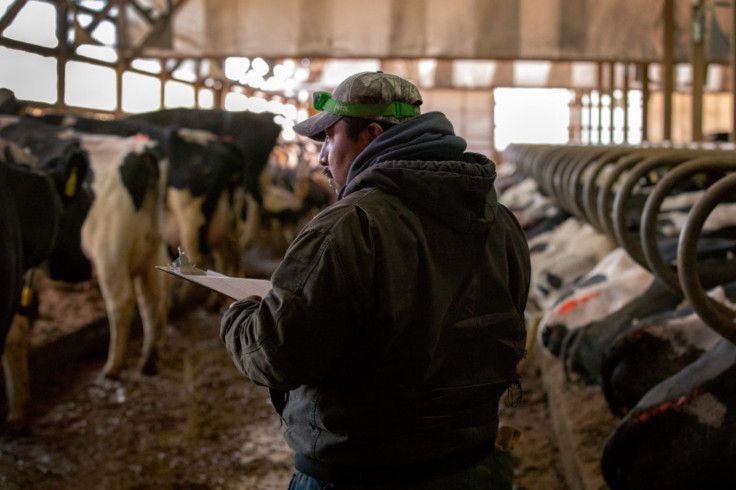Wisconsin Dairy Farmers Fear Impact of Trump's Deportation Plans

Wisconsin dairy farmers are increasingly alarmed by the implications of former President Donald Trump\'s immigration and mass deportation strategies on the dairy industry, a sector heavily dependent on foreign labor.
John Rosenow, a dairy farmer in Waumandee, is one such voice of concern. He has underscored the critical role immigrant labor plays in sustaining daily operations and providing products like milk, cheese, butter, and ice cream. Speaking to the Financial Times, Rosenow poignantly remarked, "If there's no immigrant labor, there's no milk, no cheese, no butter, no ice cream. We'll all have to go vegan."
With Trump's policy plans threatening to initiate unprecedented deportations within the United States, many in the dairy sector are anxious about the future of their businesses. Rosenow admitted to having "a lot fewer worries before Trump got elected" and expressed trepidation about the changes his administration represented.
The fear of impending labor shortages has spurred a surge of urgent communications from Wisconsin citizens to local representatives, urging them to resist stringent immigration policies. The Wisconsin Examiner highlighted that Trump's pledge to enforce mass deportations has brought palpable fear among immigrants, most of whom form the backbone of the state\'s dairy workforce.
Carmel Capati, managing immigration attorney at the Catholic Multicultural Center in Madison, acknowledged the anxiety among immigrant workers. "As we anticipate a change of national leadership, immigrant communities across our state are fearful of what may be coming," noted Capati.
Recent statistics reveal that immigrant workers, primarily from Mexico and Central America, constitute about 70% of Wisconsin's dairy labor force. The lack of annual visas tailored for low-skilled workers leaves many of these laborers undocumented and vulnerable, a situation that Mariana Rodriguez of the United Migrant Opportunity Services describes as exploiting "cheap workers [who] can be easily disposed of."








